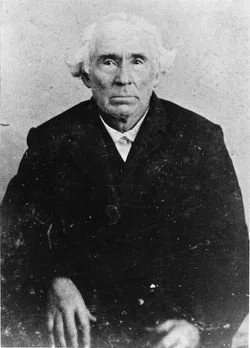Mike Parker: Local historian's second book hits closer to home
When Dennis Harper was 11 years old, he became fascinated with the Wyse Fork Battlefield. His first discovery was “a perfect Williams Cleaner.” The Williams Cleaner was a bullet designed so the discharge of the musket would drive the concave disks of the bullet forward, expanding the lead bullet against the interior walls of the rifled barrel to remove residue left by other rounds. Dennis has collected more than 15,000 artifacts from the battlefield over decades.
Through meticulous research into the Battle of Wyse Fork, Dennis identified the units that fought. He spent years collecting documents, maps, drawings, and photos, as well as relics. During the COVID lockdown, he decided to pull his collection together and create a book, which came out in 2021.
“The Battle of Wyse Fork, March 7-10, 1865: A Collection of Documents” is his research put into book form. Much of the text in the book comes from documents Dennis collected through the years. He listed himself as “compiler,” not “author.”
In 2021, Harper finalized and published his second book – a more personal book. “Six Sons Served and Six Survived” is his latest work. It focuses on “The Harper Boys of Deep Run, Lenoir County, North Carolina.”
Although few today would see the miracle contained in that title, the fact that six sons fought and all six made it home is amazing to anyone familiar with the grim math of the American Civil War. Roughly 900,000 men fought in the Confederate Army. One in three died on the battlefield, from wounds sustained in battle, from disease, or as a prisoner of war. Odds suggest two of these six sons should have died.
During a presentation Dennis made about his book, he mentioned that the father of these six sons, Blackledge Harper, was a Deep Run farmer who owned more than a thousand acres. His family members and hired laborers worked his farm. Blackledge refused to own slaves. Although he never owned slaves, sometimes when he needed additional help, he hired slaves from his neighbors. He was a member of the Unitarian Universalist Church in his community, and this church supported abolition.
He married Sally Tyndall, and the two had 12 children. By the time Blackledge was 48, the war had begun. He never served, but six of his sons did. For his sons, the war addressed a threat to their “love of freedom, privacy, and independence.”
Three brothers enlisted in Company D of the 27th North Carolina, the Tuckahoe Braves. Windal and Cornelius enlisted on April 27, 1861, and Zachariah enlisted on September 13, 1861. On March 1, 1862, Jesse enlisted in Company E of the 61st North Carolina. Simpson joined the 8th Battalion Partisan Rangers on May 15, 1862. Bright joined Company E of the 61st North Carolina on August 13, 1863.
Dennis also included Henry Cunningham in his book. Cunningham enlisted the same day as Windal and Cornelius in Company D of the 27th North Carolina. Blackledge and Henry Cunningham are the great grandfathers of Dennis' parents – Daniel Harper and Helen Cunningham.
After identifying enlistment dates, ranks, and units, Dennis takes the reader for a whirlwind tour of each unit’s various engagements. He intersperses maps and photos along with the listing of engagements. He includes the number of men killed and wounded during each battle in many places.
I left this section of the book wondering how men who fought in so many battles survived the war. Most of the brothers came through unscathed.
The entire book is 32 pages, including maps and photos. I read it in less than an hour. Yet, the book could inspire many readers to a lifetime of research tracking down the details of the battles – and treatments of prisoners of war at Point Lookout, Maryland. Bright and Windal were both held prisoners of war there in March of 1865.
If you have an interest in local history, contact Dennis. He has copies of his book for sale. You can reach him through his email: dennisharper5355@gmail.com.
Mike Parker is a columnist for the Neuse News. You can reach him at mparker16@gmail.com.





